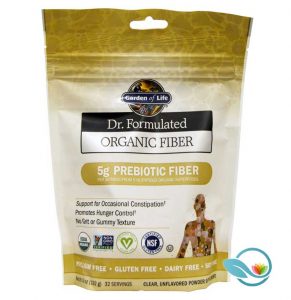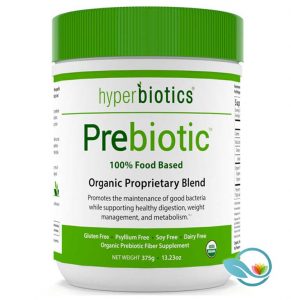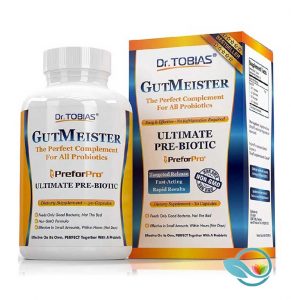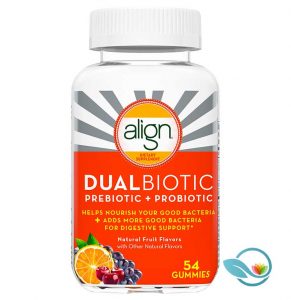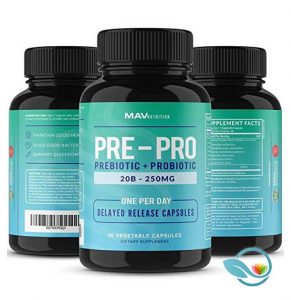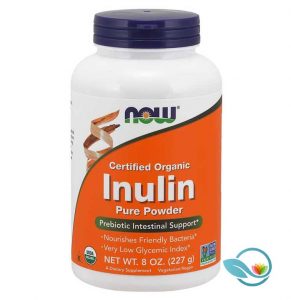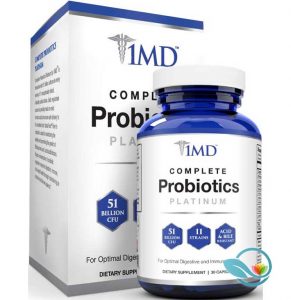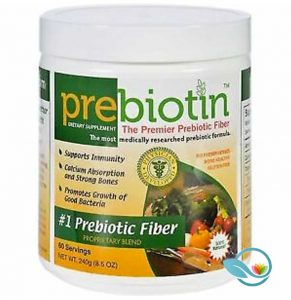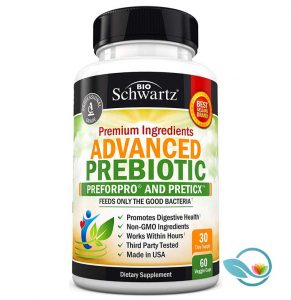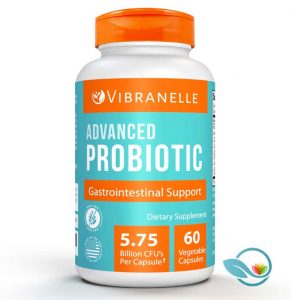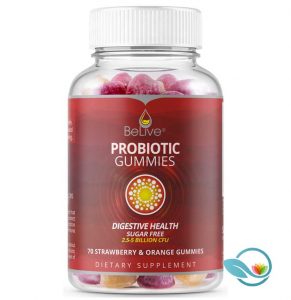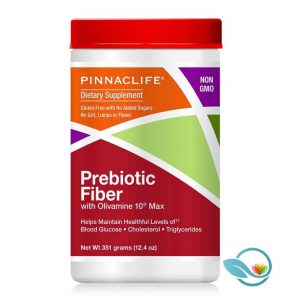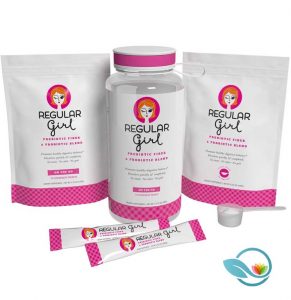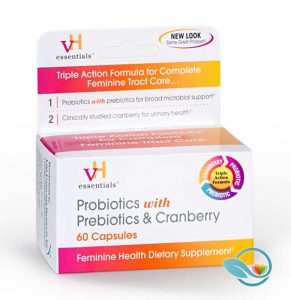Health & Wellness
Reviewing The Best Prebiotic Supplements of 2019
Published
6 years agoon

Prebiotics are nutrients that feed the bacteria in your digestive tract. Today, some people take prebiotics to improve their gut health.
By improving gut health, prebiotics can enhance digestion, boost immune system function, help you lose weight, and even improve mood and reduce stress. Your gut plays a crucial role in your physical and mental health.
Prebiotics have become particularly popular in recent years. There are more prebiotic supplements available from Amazon and other retailers than ever before.
Our editorial team has ranked the best prebiotic supplements available today. Keep reading to see our rankings.
Rankings
Performance Lab Prebiotic
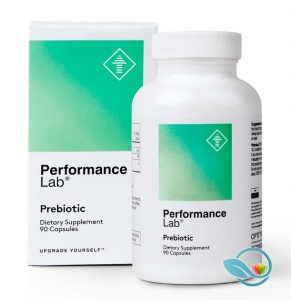 The packaging for Performance Lab’s Prebiotic supplement makes it look like a prescription drug – not a supplement. Clever packaging aside, however, this supplement includes 90 prebiotic capsules that have just one ingredient inside: Inulin-FOS.
The packaging for Performance Lab’s Prebiotic supplement makes it look like a prescription drug – not a supplement. Clever packaging aside, however, this supplement includes 90 prebiotic capsules that have just one ingredient inside: Inulin-FOS.
Inulin-FOS is a popular prebiotic ingredient. It’s a combination of inulin (a polysaccharide) and FOS (FructoOligoSaccharides, a natural sweetener found in fruit). These are both soluble fibers. Your gut bacteria feed off the soluble fibers, so by taking this supplement, you’re giving the bacteria in your digestive tract valuable nutrients.
Inulin-FOS appears to be particularly effective as a prebiotic because it can travel through the stomach and small intestine without breaking down. That means more of the active ingredient ends up going where it’s supposed to go.
Garden of Life Dr. Formulated Organic Fiber Prebiotic
Garden of Life makes a range of organic nutritional supplements, including their popular Organic Fiber prebiotic supplement. Each serving contains 5g of prebiotic fiber in citrus flavor. The supplement claims to support occasional constipation and promote appetite control without having an unpleasant gritty or gummy texture.
Unlike the first supplement on our list, which uses just one active prebiotic ingredient, Garden of Life contains five different sources of fiber to create an optimal environment for bacteria growth, including baobab, apple, orange, cranberry, and acacia. Garden of Life claims to have consulted with a nationally renowned microbiome expert to craft their prebiotic supplement.
As with other fiber supplements and prebiotics, Organic Fiber may help you feel fuller. The fiber swells in your stomach, tricking your body into thinking its full. Thanks to these benefits and its high fiber content, the Garden of Life Organic Fiber supplement is one of the best prebiotic supplements available today.
Hyperbiotics Prebiotic
Hyperbiotics makes a 100% food based prebiotic containing a proprietary blend. The company claims their supplement promotes the growth of good bacteria while also encouraging healthy digestion, weight loss, and metabolism.
All ingredients are USDA Organic Certified. Key ingredients include acacia, Jerusalem artichoke, and green banana flour. The foods provide a high dose of fiber while also being derived entirely from natural sources, so you don’t have to worry about flooding your body with unpleasant chemicals.
Plus, because the ingredients contain both starch and fiber, they feed your gut bacteria in different ways. Overall, this supplement provides a wide range of nutrients to help your gut in different ways.
Dr. Tobias GutMeister
When you call your supplement “GutMeister”, you better be certain it works as advertised. Dr. Tobias’s GutMeister supplement is advertised as “the perfect complement for all probiotics” and the “ultimate pre-biotic”.
The formula is also different than any other prebiotic on this list. While other prebiotic supplements use fiber and starch to feed your gut bacteria, GutMeister takes a different approach. The supplement uses a patented formula to target and kill bad bacteria in your gut, freeing up nutrients for good bacteria to grow and multiply.
Other prebiotics on this list feed your gut bacteria with fiber or starch, but GutMeister uses a unique approach. Science actually backs it up: clinical studies have supported the effectiveness of GutMeister. And, because there’s no fiber in the supplement, it won’t lead to bloating and gas like other prebiotic supplements on this list.
If you want a traditional prebiotic supplement, then Dr. Tobias also sells a normal prebiotic supplement for around the same price.
Align Dual Biotic Prebiotic + Probiotic
Align makes a range of gut health supplements, including their popular DualBiotic Prebiotic + Probiotic. It’s one of the bestselling supplements in the prebiotic category on Amazon. It’s also priced vary reasonably: you’ll pay around $20 for a container with 30 servings (60 gummies). Each 2 gummy serving includes 10mg of Bacillus coagulans LactoSpore along with 2.5g of inulin (as chicory root fiber).
The dosage isn’t quite as high as other prebiotic supplements on this list, which is what you expect with a gummy supplement. Some people may also not appreciate the added sugar (1g of beet-derived sugar per each 2 gummy serving). However, Align Prebiotic + Probiotic is one of Amazon’s bestselling prebiotic supplements for good reason.
MAV Nutrition Pre-Pro Prebiotic + Probiotic
MAV Nutrition makes one of the strongest prebiotic supplements on this list. it’s also one of the highest rated prebiotic supplements on Amazon, scoring an incredible 4.8 stars out of 5 with over 420 customer reviews.
Each serving (1 capsule / 60 servings per container) contains 20 billion CFUs of seven different strains of bacteria. There’s also 250mg of inulin, which is a much lower fiber dose than most other supplements on this list. However, that should also mean less bloating while still letting the high dose of probiotics go to work. You may want to take a separate fiber supplement, however, to ensure your gut bacteria have enough nutrients.
NOW Supplements Certified Organic Inulin Pure Powder
If you’re looking for a no-nonsense prebiotic supplement that simply does its job well, then the NOW Supplements inulin powder supplement is the right choice for you. The USDA Organic Certified supplement is marketed as a “prebiotic intestinal support” supplement that nourishes friendly bacteria with a very low glycemic index.
There’s 2g of fiber in each serving (1 level teaspoon or 2.8 grams). NOW recommends taking 1 to 3 servings per day for maximum digestive support.
1MD Complete Probiotics with Prebiotic Fiber
Many of the best prebiotic supplements combine probiotics and prebiotics together. You help your gut bacteria in two ways: you give them the nutrients they need and increase your supply of existing probiotic bacteria. That’s how 1MD Complete Probiotics Platinum works. The supplement contains 51 billion colony forming units (CFUs) and 11 strains of probiotic bacteria. The formula is also specially designed to be acid and bile resistant, which means more bacteria will pass through your stomach to reach your digestive tract
The key to this formula is the NutraFlora prebiotic fiber, which feeds the bacteria in your gut. According to the board-certified gastroenterologist employed by 1MD, this fiber will particularly help two probiotic strains, including the Bifidobacteria and Lactobacilli strains.
The supplement is also made in the United States in an FDA-approved facility.
If you’re looking for a prebiotic supplement that combines a hefty dose of probiotics with strong prebiotic ingredients, then the 1MD Complete Probiotics Platinum may be the right supplement for you. However, because it’s packed with more ingredients than most other supplements on this list, it’s also one of the higher priced supplements on this list.
Prebiotin
Prebiotin, like most other prebiotic supplements on our list, is a powder supplement. The formula uses fiber from inulin, a plant compound rich in oligosaccharides. Oligosaccharides are long chains of sugars that also happen to be a favorite food among gut bacteria.
Another advantage of Prebiotin is that it has lower fiber content than other supplements, which means it may reduce gas and bloating symptoms. The low fiber content is offset by the oligosaccharide content. The fiber and oligosaccharides work synergistically to fuel your gut bacteria.
BioSchwartz Advanced Prebiotic
BioSchwartz makes a range of nutritional supplements, including its popular Advanced Prebiotic supplement. The company claims their formula “feeds only the good bacteria” to promote good digestive healthy.
This supplement is ideal for those who don’t like powders or find them inconvenient to take: this supplement comes in capsules. Just take two veggie capsules per day to enjoy the benefits of prebiotics.
The formula itself contains both oligosaccharides and advanced plant extracts designed to boost bacteria levels in your intestine. One of the major drawbacks of this supplement, however, is that all ingredients are hidden in a proprietary blend, making it difficult to see how dosages compare with other formulas on this list. However, BioSchwartz is a trusted supplement maker with a history of making good supplements at fair prices.
Nutrivee Advanced Prebiotic
Nutrivee Advanced Prebiotic uses the same prebiotic tactics as Dr. Tobias’s GutMeister mentioned above: the supplement uses bacteriophage ingredients that kill the bad bacteria in your gut to make room for the good bacteria.
Nutrivee’s Advanced Prebiotic doesn’t seem to be quite as powerful or effective as GutMeister – although the two supplements contain identical dosages and ingredients. GutMeister is backed by more reviews and is used by more people, but Nutrivee’s Advanced Prebiotic offers a good alternative at a cheaper price.
BeLive Probiotic Gummies
Do you find powders inconvenient and capsules annoying? BeLive makes a Probiotic Gummies supplement that contains 2.5 to 5 billion CFU in each serving. There are two gummy flavors in each bottle, including strawberry and orange.
One of the drawbacks of taking a prebiotic/probiotic gummy supplement is that dosages are low. There’s only 1.6g of fiber in each gummy. However, the gummies have a surprisingly strong dose of fructooligosaccharides, so they should provide strong digestive support overall.
Ultimately, if you’re looking for a convenient and tasty way to improve your gut health, then BeLive’s Probiotic Gummies may be the right choice. Although the company calls it a probiotic supplement, it actually contains both prebiotic and probiotic ingredients.
Pinnaclife Prebiotic Fiber
Pinnaclife Prebiotic Fiber claims to help maintain healthy levels of blood glucose, cholesterol, and triglycerides. The fiber in the supplement (which is derived from maltodextrin and processed in a way to resist digestion) feeds your gut bacteria – just like most other supplements on this list. However, Pinnaclife distinguishes itself from the competition using a proprietary blend of various antioxidants designed to support healthy bacteria.
Now, some may scoff at including antioxidants in a prebiotic blend. After all, you want prebiotic ingredients and not random antioxidants. However, if you’re looking for a diverse range of benefits, then this may be the right choice for you.
Regular Girl Prebiotic Fiber & Probiotic Blend
Regular Girl is backed with trendy packaging and marketing catered to women who want to improve their digestive health. Do females really need different probiotics and prebiotics than men? Regular Girl certainly claims they do – despite the fact that every other supplement on this list is marketed to both men and women.
In any case, each serving of Regular Girl’s Prebiotic Fiber & Probiotic Blend supplement contains 8 billion CFUs of a single probiotic strain. There’s also 6g of “Sunfiber” guar fiber in each serving. Regular Girl claims this unique fiber will feed your gut bacteria without creating gas or bloating.
Overall, Regular Girl provides a strong dose of its two main ingredients and it’s priced reasonably. However, if you’re looking for multiple fiber sources and multiple probiotic strains, then you may want to pick another prebiotic supplement on this list.
vH Probiotics and Prebiotics with Cranberry
Like the 1MD prebiotic/probiotic supplement listed above, the vH gut health supplement contains both prebiotics and probiotics, supporting healthy gut bacteria from two different directions.
Another unique feature of vH Probiotics and Prebiotics is that it includes 500mg of cranberry powder in each capsule. vH claims cranberry powder boosts probiotic growth. This may be true (we’ll talk about the research below). However, the high dosage of cranberry in each capsule forces vH to use a lower dose of probiotics and prebiotics. There isn’t even any fiber in the supplement – something we see in virtually every other prebiotic on this list.
Our Rankings
Prebiotic supplements all make similar promises: they all claim to support digestive health by giving your gut bacteria the nutrients they need. Of course, not all supplements live up to that promise.
To compile our rankings, we researched all of the above supplements extensively. Then, we meticulously ranked the supplements based on the factors below:
Prebiotic Ingredients: Most prebiotic supplements contain fiber. Some contain fiber from multiple sources. Others just use inulin or another single source. Some contain additional ingredients – like polysaccharides – that feed your digestive bacteria in other ways. We emphasized prebiotic supplements that used strong doses of ingredients proven effective in scientific studies.
Method of Action: Most of the prebiotic supplements above contain fiber and other ingredients to feed your gut bacteria. However, several supplements – including the popular Dr. Tobias GutMeiser – use bacteriophage ingredients that kill bad gut bacteria while making room for good gut bacteria.
Price and Value: A supplement company might make the world’s best prebiotic supplement, but that supplement won’t matter much if it’s priced at $2,000 per bottle. We emphasized prebiotics supplements that were within reach of an average budget while also featuring options for all different budgets.
Diverse Ingredients: We preferred prebiotic supplements that used multiple sources of fiber and polysaccharides. Some supplements use Jerusalem artichoke, green banana flavor, acacia fiber, and other ingredients to provide fiber content, for example, while others just use a single source.
CFUs and Dosage: Colony forming units (CFUs) are the dosage measurement used by probiotic supplements. It indicates the number of live bacteria in a particular supplement. We analyzed CFUs and other dosage information when compiling our rankings.
Live Bacteria: Not all supplements above contained live bacteria. Some – like the Garden of Life prebiotic supplement – do not contain live bacteria. Generally, probiotic supplements (not prebiotics) contain live bacteria, although we still appreciate when supplements contained a dose of live bacteria.
Delivery Method: The prebiotic supplements above come in the form of a powder, capsule, or gummies. Typically, powders provide the highest dosage – but they may not be as convenient to take.
Other Ingredients: Some prebiotic supplements contain just prebiotics. Others contain antioxidant blends, probiotics, and other ingredients. Since we’re reviewing prebiotic supplements, we didn’t give any preference to supplements that used non-prebiotic ingredients. However, we took these ingredients into consideration. We also emphasized USDA Organic Certified ingredients and natural flavors instead of inorganic sources and artificial ingredients.
Who Should Take Prebiotics?
 Prebiotic supplements have become increasingly popular in the nutritional supplement industry. Probiotics have been popular for decades – but do you really need to take a prebiotic too?
Prebiotic supplements have become increasingly popular in the nutritional supplement industry. Probiotics have been popular for decades – but do you really need to take a prebiotic too?
Many people take prebiotics and probiotics together to improve digestive health from multiple angles. Some of the supplements listed above include both prebiotic and probiotic ingredients, helping your gut bacteria in multiple ways.
What’s the difference between the two? Do you really need both?
Probiotic supplements (typically) contain live probiotic bacteria. You take a capsule filled with live bacteria (in the form of colony forming units or CFUs). These bacteria pass through your stomach and enter your intestines, where they begin working as probiotic bacteria. They break down the foods you eat, extract nutrients, and supplement your digestive system in multiple ways.
Prebiotic supplements, meanwhile, simply feed those bacteria. Those bacteria need ingredients like fiber or polysaccharides (strings of sugar) to survive. Prebiotic supplements contain hefty doses of fiber, polysaccharides, or both.
If you already get a lot of fiber in your diet, then you may not need a prebiotic supplement. However, not all of the prebiotic supplements above contain fiber: some promote healthy gut bacteria in other ways. They neutralize bad bacteria, for example, using bacteriophage ingredients.
Ultimately, if you want to support healthy digestion, then a prebiotic supplement may be the right choice for you.
Benefits of Prebiotic Supplements
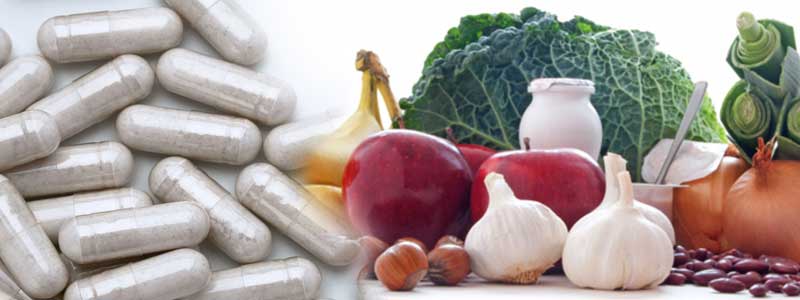 Prebiotic supplements have proven benefits. The ingredients in prebiotics have been studied by researchers, and those studies have been published in peer-reviewed journals. Some of the supplements above even use specific patented formulas that have been independently studied.
Prebiotic supplements have proven benefits. The ingredients in prebiotics have been studied by researchers, and those studies have been published in peer-reviewed journals. Some of the supplements above even use specific patented formulas that have been independently studied.
In this study, for example, researchers at the Royal Marsden NHS Foundation Trust in London found that fiber-based prebiotic supplements could be helpful for treating gastrointestinal conditions. That same study suggested that prebiotics could also decrease stress hormone levels, increase weight loss, and help regulate mood.
After reviewing other studies on prebiotics, the researchers found that taking supplemental fiber (like the fiber found in prebiotics) could increase the growth of beneficial bacteria in the digestive tract in people with inflammatory bowel diseases, which decreases inflammation and reduces certain symptoms.
Researchers also found that prebiotics improved the functioning of the mucus layer that lines the stomach and intestines.
You’ll notice that many of the prebiotic supplements listed above contain oligosaccharides. Research has shown that prebiotics with oligosaccharides can boost immune functionality. This study published in the British Journal of Nutrition in 2005, for example, found that consuming oligosaccharides increases the body’s production of certain disease-killing immune system cells. These are the cells that seek out and destroy harmful pathogens within the body. When you take a prebiotic supplement, you’re giving your probiotic bacteria the nutrients (like oligosaccharides) they need to stay active.
Some people take prebiotics to lose weight. Research has backed up the effectiveness of prebiotics for weight loss. This study published in the Journal of Pediatrics in 2007, for example, analyzed the effects of a prebiotic supplement on weight loss over a one-year period. Researchers from the Baylor College of Medicine gave 100 adolescents a prebiotic supplement or a placebo and then measured their body mass index over a one-year period. Participants that took the prebiotic supplement had a lower body mass index than the control group at the conclusion.
Based on this result, researchers believe that a healthy gut microbiome is a crucial part of weight loss.
That same study also found that participants who took a calcium supplement gained less weight than the control group. Some suggest that calcium supplements and prebiotic supplements complement one another and work synergistically. However, more research needs to be done to confirm this benefit.
Prebiotics do have a proven benefit of lowering stress levels. This study published in Psycho-Pharmacology, for example, analyzed cognitive and mood changes in a group taking prebiotic supplements. Researchers found that prebiotic supplements could lower stress levels and increase positivity. Researchers found that prebiotics lowered levels of the stress hormone cortisol. In the study, participants self-reported more positive and fewer negative emotions after taking a prebiotic supplement regularly over a 3 week period.
Many older adults take prebiotics to improve their gut health. Research has shown that prebiotics may be particularly effective for older adults. This study published in the British Journal of Nutrition in 2012, for example, found that older adults who took prebiotics had higher levels of beneficial gut bacteria than a control group.
In that study, older adults (ages 50 and up) were randomly assigned to receive either a placebo juice or a juice with 4g of prebiotics every day. Researchers tracked the levels of specific beneficial bacteria in each participant by analyzing stool samples. After 3 weeks, the two groups switched. With both groups, researchers found that levels of healthy gut bacteria were significantly higher in the group taking the prebiotic supplement. Based on this research, prebiotic supplements could significantly help older adults maintain good digestive health.
Some people take probiotics or prebiotics to lower cholesterol levels. Research has backed up this strategy, showing that prebiotics can lower blood triglycerides. Blood triglycerides are a major risk factor for heart disease. Researchers believe that prebiotics help you digest your food more easily, lowering the levels of harmful triglycerides absorbed by the body.
This study published in Clinical Nutrition in 2015 reinforced that idea. The study reviewed 13 randomized controlled trials testing prebiotic supplements and blood lipid levels over a several week period. Based on the results of these studies, researchers found that prebiotic supplements could significantly lower blood triglyceride levels and decrease blood cholesterol levels, significantly lowering your risk of heart disease.
Side Effects of Prebiotics
 Generally, prebiotics are well-tolerated. Few people who took prebiotics will have any adverse side effects.
Generally, prebiotics are well-tolerated. Few people who took prebiotics will have any adverse side effects.
The most common side effects of prebiotics include bloating and gas, which are caused by the high fiber levels in prebiotic supplements.
If your body does not typically get lots of fiber, then suddenly adding fiber to your diet can cause problems. Start slow (say, with one serving per day) before gradually increasing fiber intake – especially if you notice uncomfortable symptoms of bloating or gas.
Aside from bloating and gas, there are few reported side effects of prebiotics.
Recommended Dose of Prebiotics
 Generally, it’s best to follow the manufacturer’s recommended dose on your prebiotic supplement. Most manufacturers recommend taking 1 to 3 servings of their supplement per day.
Generally, it’s best to follow the manufacturer’s recommended dose on your prebiotic supplement. Most manufacturers recommend taking 1 to 3 servings of their supplement per day.
If your body is unaccustomed to high fiber levels, then you may want to start with just one serving per day before gradually increasing the dosage.
One study on prebiotics found that the optimal dose was 4g of prebiotics per day for supplements containing inulin or oligosaccharides. That same study recommended a maximum dose of 20g per day. Doses beyond this level led to uncomfortable gastrointestinal side effects.
A separate study found that increasing prebiotic dosages could increase the benefits. This study from researchers at the University of Nebraska, for example, compared participants taking a 2.5g, 5g, or 10g dose of prebiotics per day. The group that took the 10g dose had the best results.
Based on the two major studies to date, the optimal prebiotic dose appears to be 10g to 20g per day (assuming the prebiotic contains inulin or polysaccharides).
FAQs
Q: What is a prebiotic?
A: A prebiotic is a supplement that aids the beneficial bacteria (probiotics) in your gut. A probiotic supplement typically contains live gut bacteria that go to work in your digestive tract. A prebiotic supplement, on the other hand, contains ingredients that aid these same gut bacteria.
Q: How do prebiotics work?
A: Most prebiotics contain either fiber or sugar (polysaccharides). The bacteria in your gut need these ingredients to survive. They feed off fiber and sugar. Not all prebiotics contain these ingredients, however: some prebiotics contain bacteriophage ingredients that neutralize “bad” bacteria in your gut and make room for “good” bacteria.
Q: Can I get prebiotics from food?
A: You may not need a supplement to get your recommended daily dose of prebiotics. Some foods are rich with fiber and fructooligosaccharides, for example. Typically, supplements contain a much higher dose than you could reasonably get from food, however. Foods rich with prebiotic ingredients include bananas, chicory root, garlic, Jerusalem artichoke, onions, leeks, asparagus, and barley, among other foods.
Q: Are prebiotics safe?
A: Prebiotics have been well-tolerated in every major study to date. Few side effects have been reported. In rare cases, you could have an allergic reaction to some ingredients (say, if you’re allergic to one of the fruit or vegetable extracts used). However, allergies are rare.
Q: What kind of side effects should I expect from prebiotics?
A: Prebiotics have few side effects. However, if your body is unaccustomed to high fiber intake, then you may experience gas and bloating when you first start taking the prebiotic. Consider gradually increasing your dosage over time if you’re experiencing painful gas and bloating.
Q: Are all fiber supplements prebiotic supplements?
A: Fiber supplements like Metamucil are technically prebiotic supplements because they contain fiber. However, they’re generally marketed just as fiber or digestive health supplements – not specially as prebiotics. Most prebiotic supplements also contain ingredients other than fiber – like polysaccharides.
Q: Can prebiotics help me lose weight?
A: Research on prebiotic supplements has indicated some powerful weight loss results. Studies show that prebiotics are associated with weight loss. By improving your gut health, you’re making it easier for your body to lose weight. Prebiotics play a crucial role in gut health, so it makes sense they’re linked to weight loss.
Q: Can kids safely take prebiotics?
A: Most studies on prebiotics are done on adults – especially adults with inflammatory digestive conditions like Crohn’s disease. Few studies have been performed on children. However, based on all available information, we expect prebiotics to work well in kids. Talk to your doctor to verify that prebiotics are safe for your child to take.
Q: Should I take both a prebiotic and a probiotic?
A: Some of the prebiotic supplements listed above contain both prebiotic and probiotic ingredients, in which case you may not need to take two supplements. Generally, however, prebiotics and probiotoics will complement each other: the probiotic supplement gives you the bacteria you need while the prebiotic supplement feeds that bacteria.
Final Word
Prebiotic supplements have risen in popularity in recent years. Some prebiotic supplements are just rebranded fiber supplements. Most, however, are unique formulas proven to improve digestion in various ways. They can complement the effects of a probiotic supplement. Or, they can be used on their own to boost digestive tract health.
Based on the available research, the optimal dose of prebiotics appears to be around 10g of formula per day. However, specific dosages vary widely between supplements. Consult with a doctor or check your manufacturer’s label for accurate dosage information.


